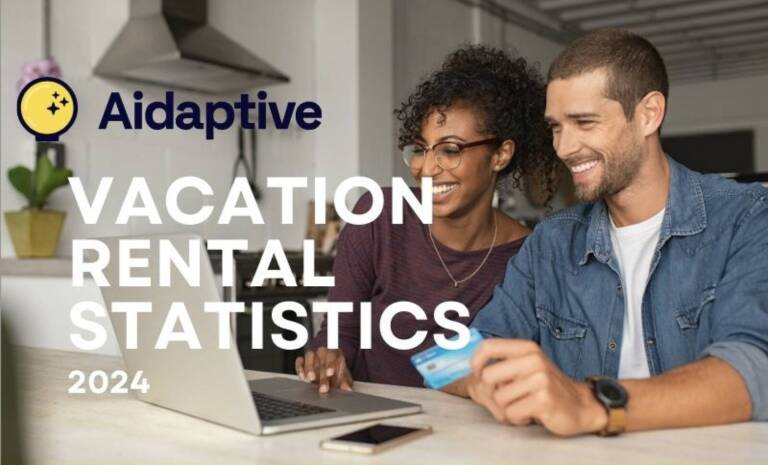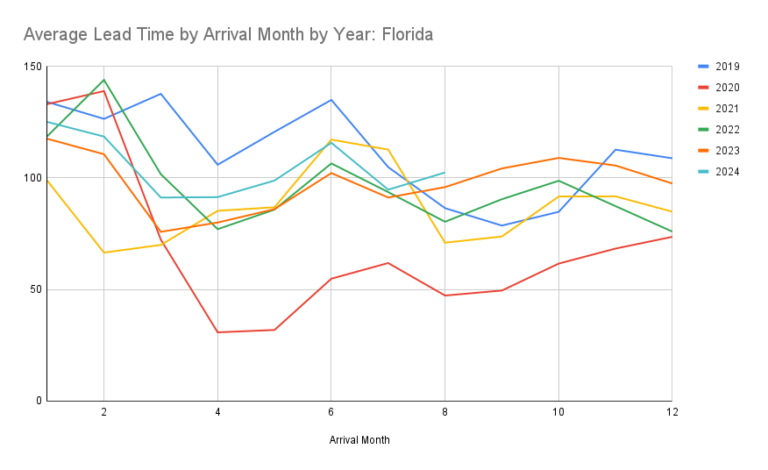Direct bookings are the lifeblood of vacation rental managers (VRMs). They offer the opportunity for VRMs to cultivate guest intent data, build brand loyalty, and keep their hard-earned revenue. However, in 2023, the internet will transform more than ever. VRMs that fail to adapt to the diminishing data landscape risk losing their direct booking autonomy to online travel agencies (OTAs) and their hefty booking fees.
Here are 10 key reasons why VRM direct bookings are at risk of vanishing in 2024:
1. There’s a data war looming
Big tech companies are no longer sharing data with each other… and especially with VRMs. The lack of data sharing will make it even more challenging for VRMs to cultivate guest intent data to optimize their direct booking funnels, making it harder for VRMs to compete with the larger established brands.
2. VRMs can’t use real AI without data
OTAs leverage guest intent data to personalize guest booking journeys & communication. Without sufficient data, VRMs can’t use real AI algorithms. Many vendors say “AI-powered” for branding, but 99.9% rely on rule-based systems instead of true machine learning (ML) algorithms. VRMs must be cautious when evaluating “AI vendors” and focus on cultivating enough data in the near term if they want to deploy AI solutions that can truly automate their operations in the next 6 months.
3. OTA booking fees will rise
OTAs charge an average booking fee of 15%, which significantly impacts a VRM’s bottom line. As OTAs gain more control over the direct booking tug-of-war with VRMs, their fees are likely to increase. VRMs that rely on OTAs are losing near-term profits & long-term residual value as guest data is the new gold.
4. Lack of eCommerce education
Ecommerce and direct bookings are the same game. Big tech companies like VRBO and Airbnb use guest data to personalize marketing activities. The OTAs acquire VRM guest data by proactively taking their direct bookings. VRMs that don’t deploy eCommerce best practices experience much higher advertising costs amplified by drastically lower direct booking conversion rates. This allows established OTAs to penetrate local markets and muscle around smaller players.
5. Cookies no longer providing user behavior data
Third-party cookies, essential to online advertising for years, are being phased out due to privacy concerns. This change makes it harder for VRMs to track user behavior and deliver targeted ads, negatively impacting the effectiveness of direct booking campaigns.
6. Pay-Per-Click (PPC) is becoming unaffordable
From what I’ve seen firsthand, VRMs typically get a 5-10x ROI on ad spend. PPC advertising has clearly been the most cost-effective way for VRMs to drive direct bookings. However, the lack of data sharing across big tech and the rising costs of key PPC terms are fencing out smaller brands from direct booking opportunities.
7. GDPR is coming to America & data regulation is skyrocketing
As customer data privacy concerns rise, many states in the USA are enacting their own data privacy laws, which are similar to the GDPR. For instance, California passed the CCPA in 2018 and the CPRA in 2020, expanding privacy protections. Similarly, Virginia, New York, and Colorado have also passed and are expanding their own data privacy laws. VRMs need to establish data cultivation systems today that comply with these regulations to avoid penalties and maintain direct booking conversions.
8. Google Analytics (GA) becoming more rigid with mandatory transition to GA4:
If you thought the last 2 points were enough, the mandatory transition to GA4 makes Google Analytics more rigid and less transparent. With a decreased ability to personalize guest booking journeys outside of the Google platform, it will be significantly harder to cultivate guest intent data & convert direct bookings.
9. OTAs have billions in powder to take VRM guests
The top 5 OTAs spent a whopping $10+ billion in advertising in 2022. With AI personalization, OTAs create individual booking experiences at scale to aggressively acquire VRM’s direct booking guests. Repeat direct bookings are the holy grail driving lower acquisition costs, increased guest lifetime value, and long-term direct booking revenue.
10. VRMs took direct bookings for granted
Many destinations have blessed VRMs with thousands of organic monthly visitors for decades. With the internet evolving rapidly and many VRMs using unreliable technology, OTAs are capitalizing on the lack of VRM versatility by outspending them to acquire their direct booking guests. While delivering quality hospitality is the priority for VRMs, deploying eCommerce best practices are essential if VRMs wish to maintain their long-term autonomy.
Bottom line – VRMs prioritizing direct bookings must act now to protect their long-term revenue. By optimizing direct booking websites with eCommerce best practices and leveraging AI personalization that only the OTAs had until now, VRMs can compete in the rapidly evolving guest data landscape to efficiently scale their revenue growth.
You might also like these:


